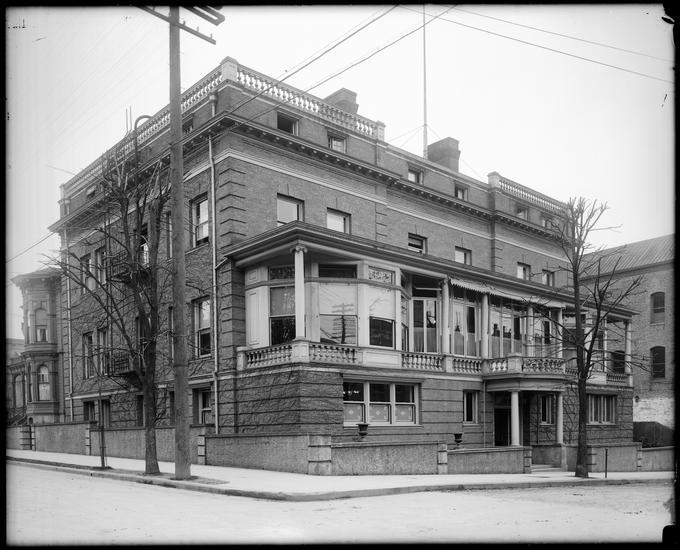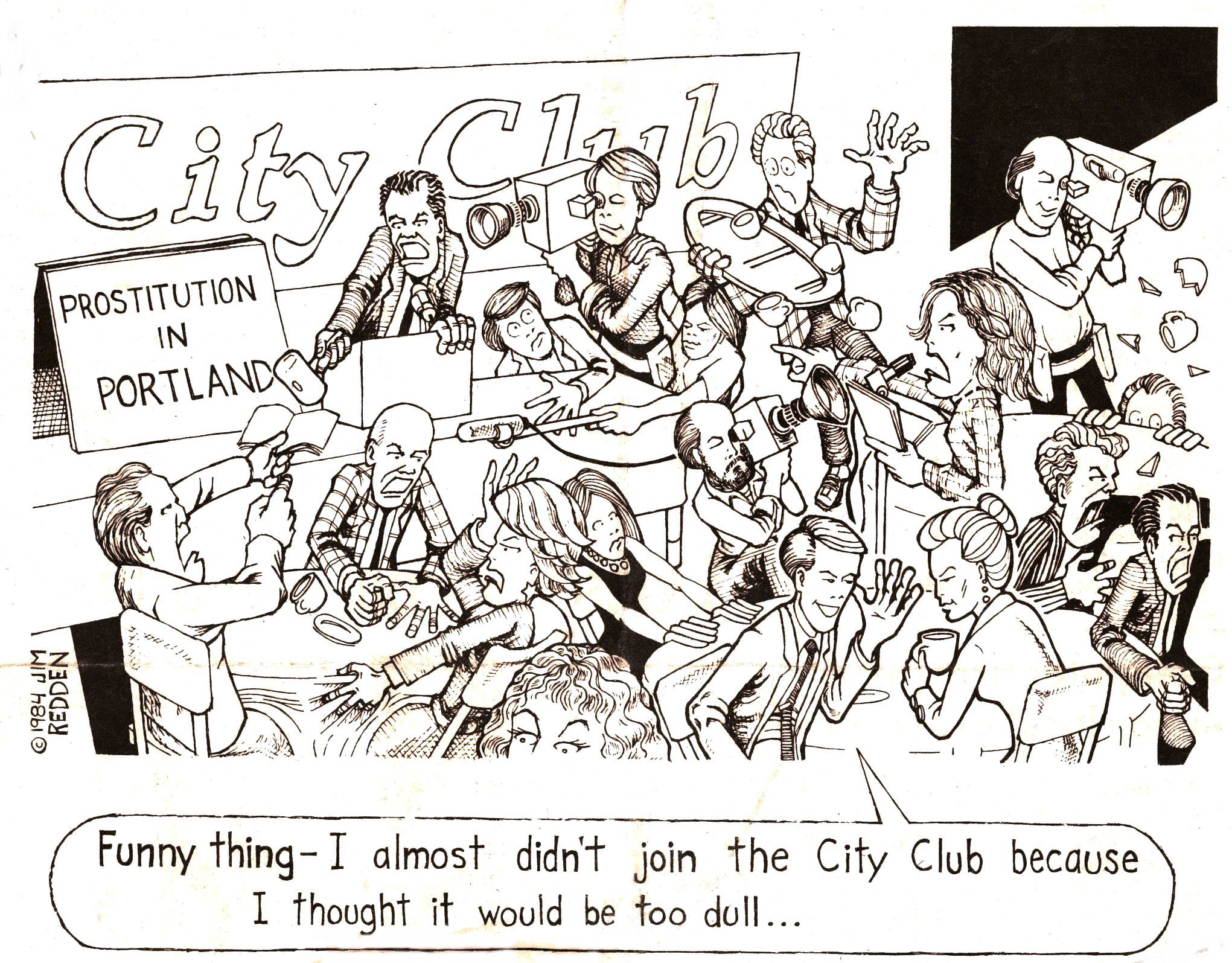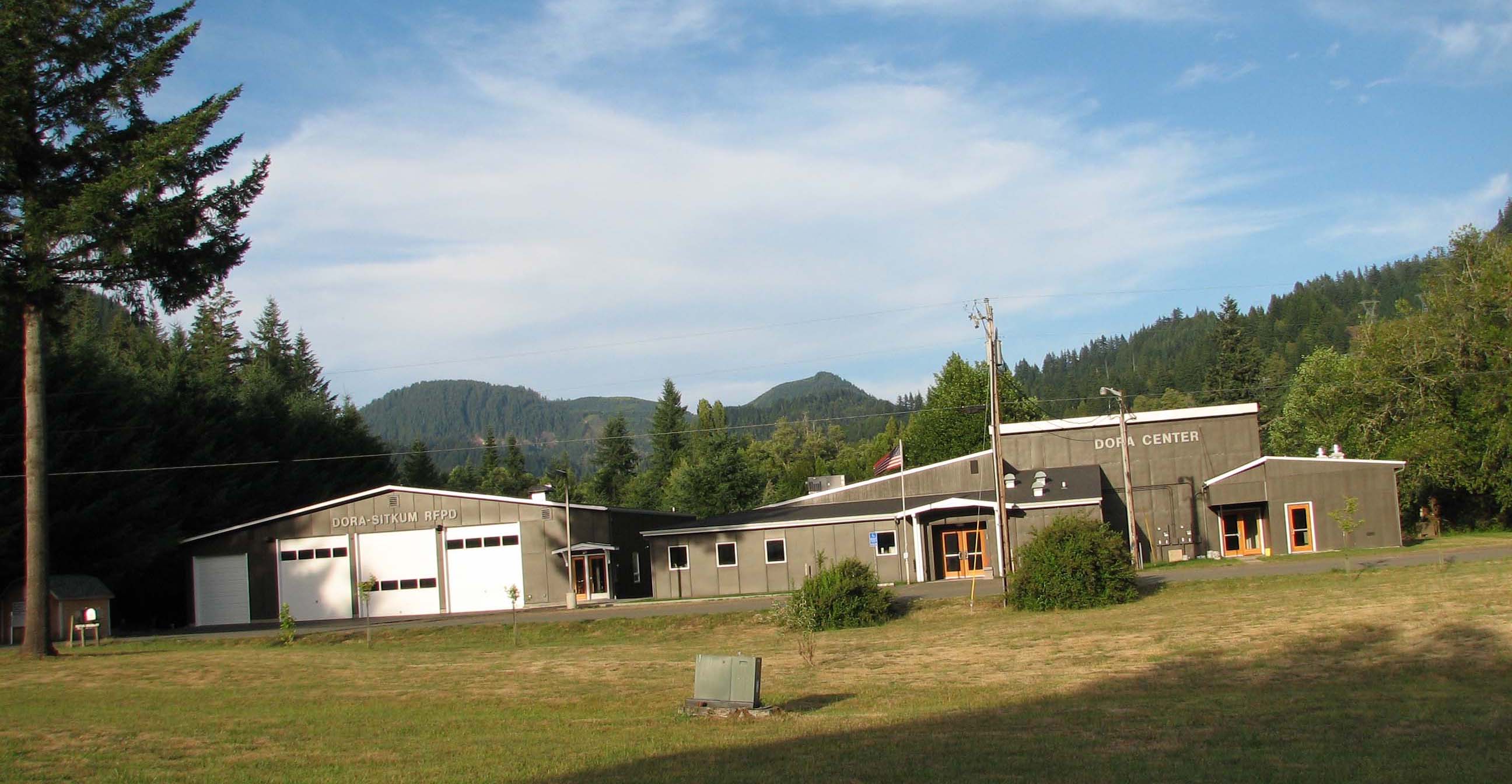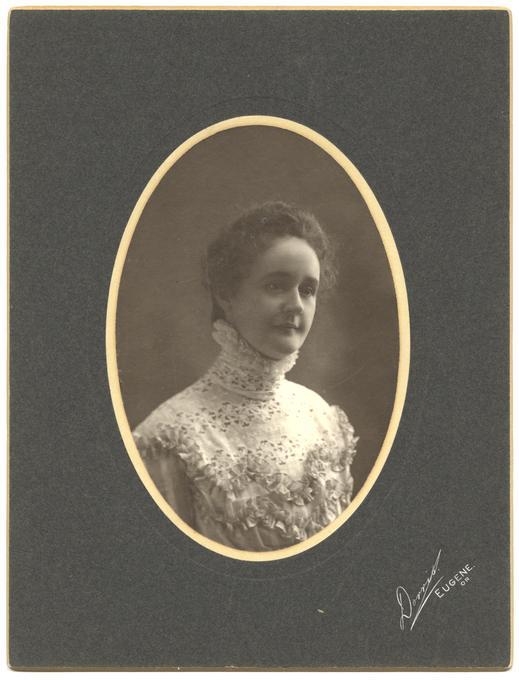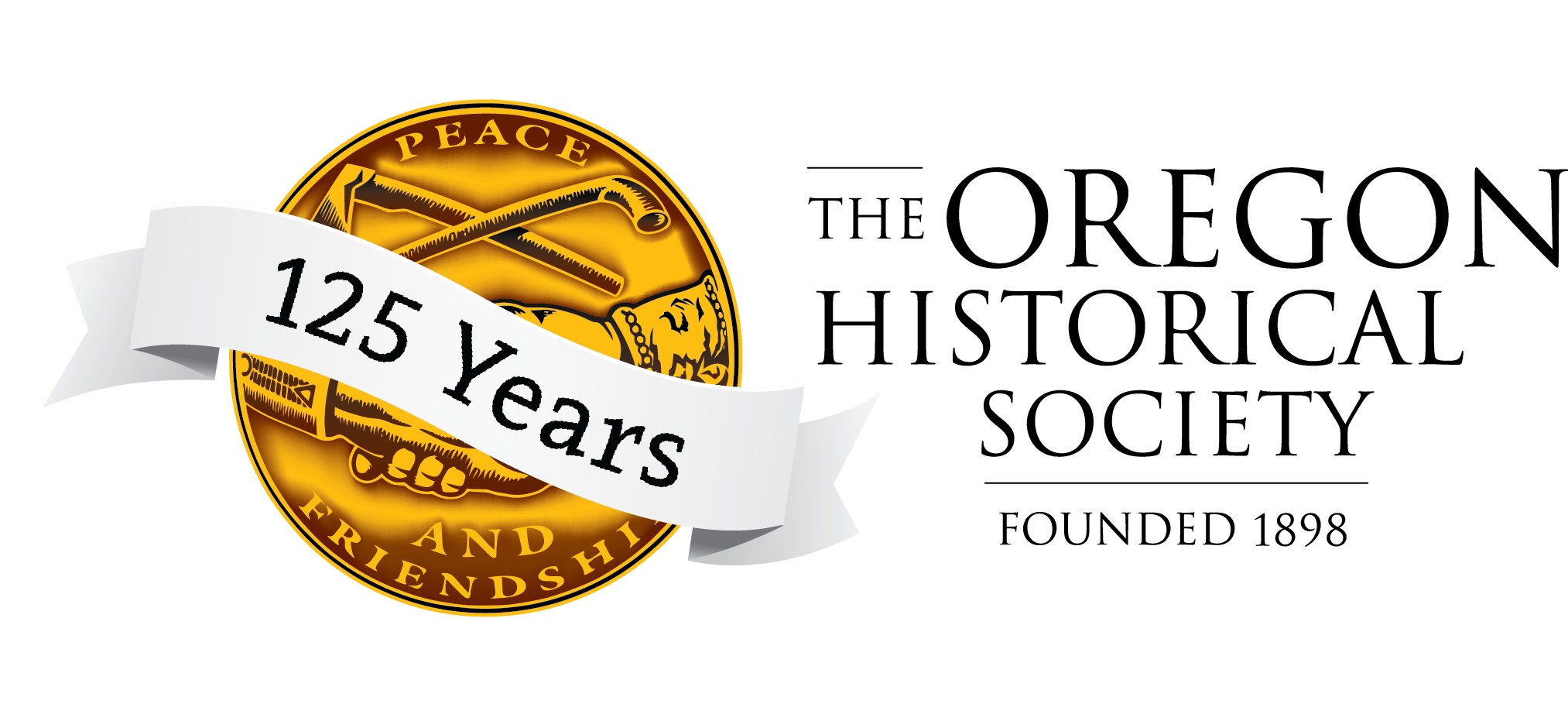In 1910, the exclusive, all-male Arlington Club built its permanent home at 811 Southwest Salmon Street in Portland. Over a hundred years later, the invitation-only, 600-person club is overwhelmingly male and includes a range of members, from lawyers and politicians to developers and university presidents.
Members pay an initiation fee and monthly dues for access to the Arlington Club, which includes a luncheon site, business center, library, bar, game room, hotel facilities, and meeting rooms. The club and its members also host social events, ranging from weekly Toastmaster’s meetings and monthly Tuesday Club presentations to annual fly-fishing and cycling trips, lobster feeds, and Valentine's Day dinners.
The Arlington Club was founded on December 9, 1867, by a group of thirty-five prominent Portland businessmen, including Simeon Reed, Henry Failing, C.H. Lewis, and J.C. Ainsworth. George H. Williams—chief justice of the Oregon Supreme Court, U.S. senator, and attorney general of the United States—drafted the articles of incorporation in December 1881. By February 1882, club members had approved a constitution and bylaws that regulated membership, dues, and purpose, which was to attain “social advantage, improvement, and enjoyment.”
Club members met in public locations until 1882, when they leased Ainsworth’s home at Third and Pine. The Ainsworth House had a reading room; a billiard room for drinking, smoking cigars, and playing five-cent pool; and meeting and supper facilities. Members forged important social, economic, and political relationships there and at the club’s second home, built in 1892 at West Park and Alder.
From Jesse Applegate and Joel Palmer to Henry Corbett and William S. Ladd, the men who developed banks, financed real estate, dredged rivers, controlled trade and transportation, and built museums, libraries, and churches gathered at the Arlington Club. Over the decades, the club attracted the most powerful and influential men in the city, including lumbermen, legislators, and other professionals who found camaraderie with each other. It is possible to trace much of the history of Portland and Oregon through club members such as Glenn Jackson, Stub Stewart, James Miller, Robert Pamplin, and Sam Naito.
Most of the business and social clubs that were established early in Portland’s history—the Arlington Club, the University Club (founded in 1898), and the City Club of Portland (1916)—were exclusively male and gentile well into the twentieth century. Others—the Waverley Country Club (1896) and the Portland Golf Club (1914)—provided strictly controlled co-educational activities. The Concordia Club (1879) and the Tualatin Country Club (1912) were the Jewish country clubs, and nine of the twenty-six Multnomah Amateur Athletic Club (1891) founders were Jewish. The elite Town Club (1928), located a block west of the present Athletic Club, excluded men (and still does). In 1969, the Arlington and University clubs admitted their first identified Jewish member, attorney Moe Tonkon. Tonkon claimed also to be the first Jewish member at Waverley in 1972, the year before City Club opened to women.
The Arlington Club remained firmly male and primarily Caucasian even as growing numbers of women and minorities entered the professional workforce. In 1988, the U.S. Supreme Court declared social clubs like Arlington “public in nature” and mandated equality in membership. Still, while some Arlington Club members lobbied internally for the acceptance of women, many vehemently opposed it. After much controversy and debate, the City of Portland threatened to remove the club’s liquor license and impose a fine of $500 a day if the club continued its exclusionary practices.
On March 27, 1990, 69 percent of the members voted for female membership, and the club officially opened to women. Historian Elizabeth Crownhart Vaughan was the first woman posted for membership. Concurrently, the club quietly allowed the first African American, Portland Public Schools superintendent Matthew Prophet, to join as well. The club’s membership continued to diversify as it entered the twenty-first century, with Gail Achterman, the first female board member, elected in 2000.
-
![]()
Early Arlington Club, SW 9th and Alder, Portland.
Courtesy Building Oregon, University of Oregon. "Arlington Club (Portland, Oregon)" Oregon Digital -
![]()
Arlington Club, SW 9th and Salmon, Portland.
Courtesy University of Oregon Libraries
-
![Arlington Club interior, date unknown.]()
Arlington Club, Portland, interior, bb007578.
Arlington Club interior, date unknown. Oreg. Hist. Soc. Research Lib., bb007578
-
![]()
Arlington Club, SW 9th and Salmon, Portland.
Courtesy University of Oregon Libraries
Related Entries
-
![City Club of Portland]()
City Club of Portland
City Club of Portland is Oregon’s largest civic affairs group. It is a …
-
![Dora Friendly Club]()
Dora Friendly Club
The Dora Friendly Club is a rural women’s club in eastern Coos County t…
-
![Fortnightly Club of Eugene]()
Fortnightly Club of Eugene
Fortnightly Club of Eugene is a women’s study group started in 1893 “to…
-
![Multnomah Athletic Club]()
Multnomah Athletic Club
Founded in 1891, the Multnomah Athletic Club (MAC) is considered Oregon…
Related Historical Records
Map This on the Oregon History WayFinder
The Oregon History Wayfinder is an interactive map that identifies significant places, people, and events in Oregon history.
Further Reading
Arlington Club and the Men Who Built it: Centennial Anniversary. Portland, OR: Arlington Club, 1968.
Sinclair, Donna, and J. Kenneth Brody, with Paul McMahon, Chester Orloff, and Steven Strand. Arlington Club: Where Leaders Meet. Portland, OR: Ooligan Press, 2007.



